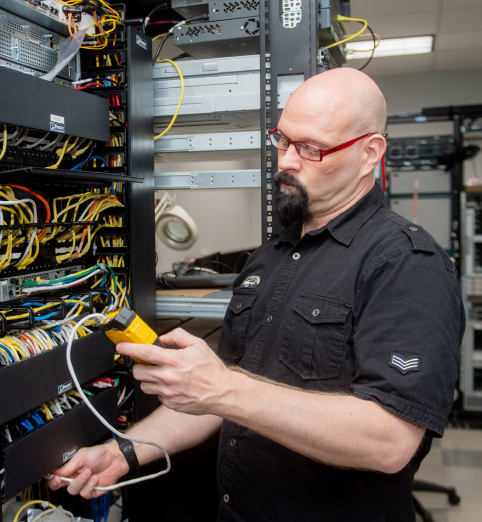4 Common Hardware Buying Mistakes For Companies
In a world where every company is a technology company, strategic investments in your IT infrastructure are critical to business success. But before you whip out that credit card, take a few minutes to consider these four common mistakes companies make when buying hardware.
At the very least, a poor purchasing decision might cause a few headaches and a bit of wasted time and energy. But at its most extreme, it can lead to problems that undermine your company’s reputation or cripple future budgets.
1. Not Having an IT Strategy That Supports Your Business Plan
Betcha’ thought we were going to jump straight to vendor selection, specs, and getting the best value for your money, right? But here’s the thing—one of those things really matters if you don’t first have a solid IT strategy that clearly articulates how your tech infrastructure will support your business goals.
Your IT strategy becomes your North Star, guiding you to determine what technology purchases are business critical. It will also help you think long-term about what you’ll need to support future growth and business expansion, while avoiding wasting money on unnecessary things or tech that will soon need to be replaced.
2. Not Paying Enough Attention to The Lifecycle of Your Existing Hardware
Even the most cutting-edge technology eventually becomes outdated, inoperable, or inadequate to support your growing business needs. And somehow, it seems problems arise and systems crash at the most inconvenient times—peak business season, right before a major launch, or when the bulk of your IT staff is away at a conference. System failures aren’t just minor inconveniences or hassles; they can result in damaged reputations with customers, loss of potential revenue, security risks, or data loss.
Keeping a finger on the pulse of your tech ecosystem and current inventory through regular maintenance checks and asset management reviews can help you identify problems before they happen and prioritize purchases for mission-critical hardware before things break down or give out. Inteleca puts asset management plans in place for many businesses and can also monitor your hardware through its lifecycle.
3. Ignoring the Secondary Market
Before you wrinkle your nose at the idea of purchasing technology that was owned by someone else, hear us out.
Buying from the secondary market can mean buying used or refurbished hardware, but that’s not always the case. Often, hardware in the secondary market is from overstock, cancelled projects, or businesses that closed—meaning that you can get brand new, fresh-out-of-the-box tech at a fraction of the retail cost. (So you’ll still get that euphoric experience of peeling that protective plastic film off your shiny, new equipment.)
Another benefit of buying from the secondary market—whether they’re refurbished machines or overstocked, unused equipment—is that they’re already made, stocked, and sitting on a shelf waiting to be purchased. So you may get your purchases even faster than buying new and waiting for it to ship from overseas, which can be critical, especially if you didn’t pay attention to Mistake #2.
We get it, though, if you’re unfamiliar with the process, it can feel safer buying technology straight from the manufacturer. But reputable secondary market retailers, like Inteleca, offer reassurance through warranties, ongoing support, and guarantees, to make sure you’re getting high quality without the high cost.
4. Not Leveraging an IT Partner
While it’s tempting to handle all purchasing and procurement in-house in an attempt to get the best deals or cut out seemingly unnecessary “middle-man” costs, this can actually cost more money in the long run.
By working with an IT vendor to help source equipment, you’re able to draw on their deep expertise and industry relationships. They’ve been around the block a time or two, know which sources are reputable, and can test and verify the quality of equipment (especially if it’s pre-owned or refurbished). They’ll also ensure proper warranties are in place and do the legwork to make sure those warranties are honored, so you aren’t left empty-handed if something goes wrong. IT vendors can also help with new hardware set-up and configuration, so you have confidence that your new purchases are well-integrated into your existing systems and IT infrastructure.
Not to toot our own horn (okay, maybe just a little), but over the past 7 years, we’ve established a solid reputation as a service provider. We’re unique in the way that not only do we provide end-to-end solutions for all your strategic IT infrastructure needs—from planning to procurement and set up to maintenance and lifecycle management—but we also source, refurbish, and sell hardware. This means that we’re in it for the long haul and work hard to establish lasting relationships with clients, rather than operate from a “one-and-done” service model.
To learn more about how Inteleca can partner with you—and help you avoid some of these common (and costly) hardware purchasing pitfalls—contact one of our engineers.



